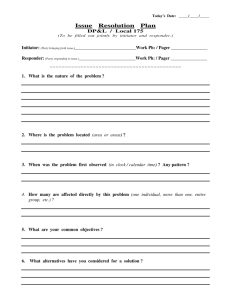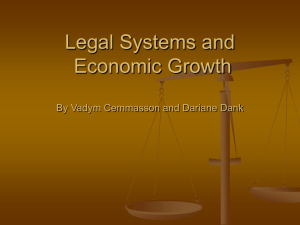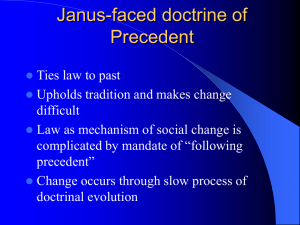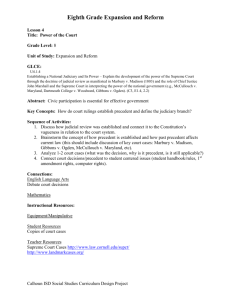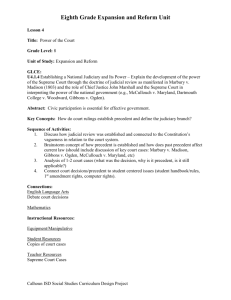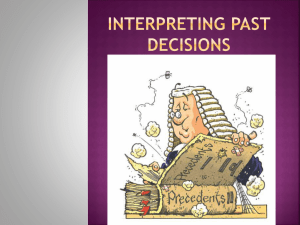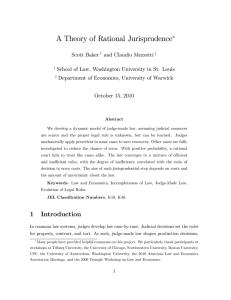Judicial Precedent
advertisement
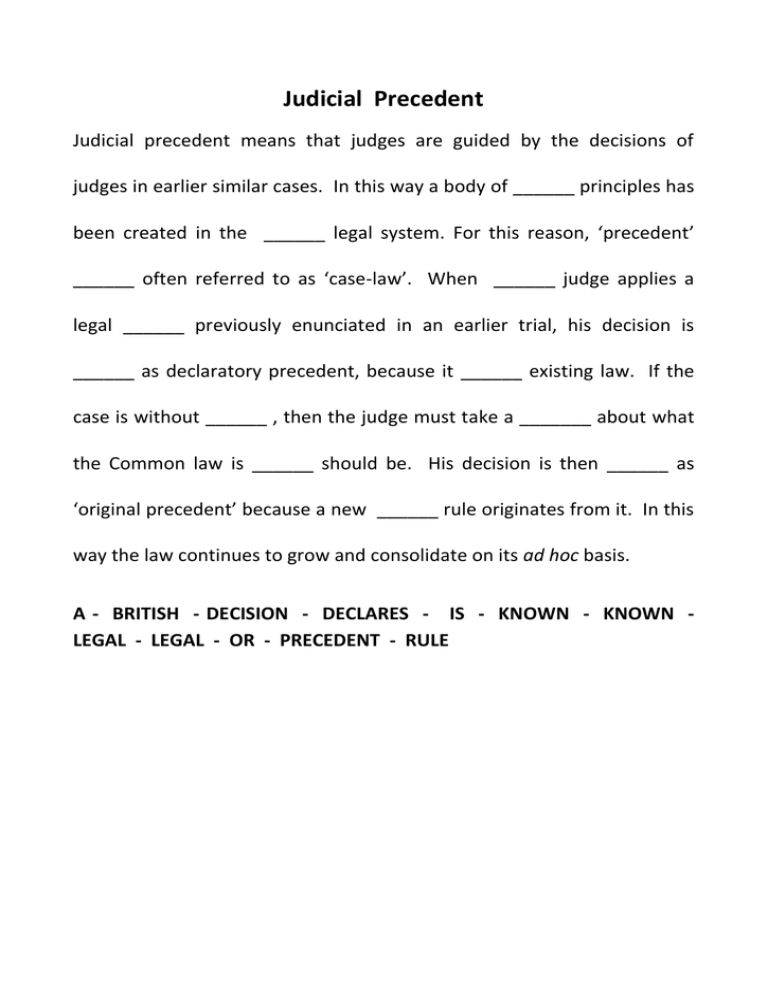
Judicial Precedent Judicial precedent means that judges are guided by the decisions of judges in earlier similar cases. In this way a body of ______ principles has been created in the ______ legal system. For this reason, ‘precedent’ ______ often referred to as ‘case-law’. When ______ judge applies a legal ______ previously enunciated in an earlier trial, his decision is ______ as declaratory precedent, because it ______ existing law. If the case is without ______ , then the judge must take a _______ about what the Common law is ______ should be. His decision is then ______ as ‘original precedent’ because a new ______ rule originates from it. In this way the law continues to grow and consolidate on its ad hoc basis. A - BRITISH - DECISION - DECLARES - IS - KNOWN - KNOWN LEGAL - LEGAL - OR - PRECEDENT - RULE Judicial Precedent Judicial precedent means that judges are guided by the decisions of judges in earlier similar cases. In this way a body of legal principles has been created in the British legal system. For this reason, ‘precedent’ is often referred to as ‘case-law’. When a judge applies a legal rule previously enunciated in an earlier trial, his decision is known as ‘declaratory precedent’, because it declares existing law. If the case is without precedent, then the judge must take a decision about what the Common law is or should be. His decision is then known as ‘original precedent’ because a new legal rule originates from it. In this way the law continues to grow and consolidate on its ad hoc basis. Dictation Common Law legal Systems English law is the historical source of the Common law group of legal systems. Among the major contemporary legal families found in the world today, the Common law family comprises mostly English speaking countries, where legal science has drawn its basic elements from English law. In time, however, differences have emerged between the Common law of England and that of those countries into which it has been imported. Furthermore, the Common law has also been partially received in some extra-European countries formerly dominated by Gt Britain, where it has been transformed and adapted by reason of its co-existence with the traditions of previous civilizations. What is a Green Paper? a green paper is a tentative government report and consultation document of policy proposals for debate and discussion, without any commitment to action; the first step in changing the law. Green papers may result in the production of a white paper. What is a White Paper? Publishing a white paper signifies a clear intention on the part of a government to pass new law. White Papers are a "... tool of participatory democracy ... not [an] unalterable policy commitment". "White Papers have tried to perform the dual role of presenting firm government policies while at the same time inviting opinions upon them."
